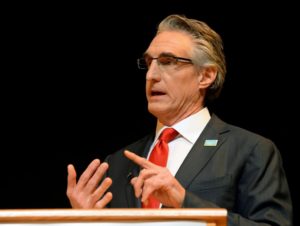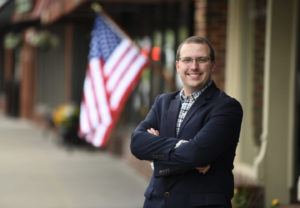North Dakota lawmakers poised to approve school choice bill
(The Center Square) – A bill in North Dakota that would aid parents in funding a private school education is one step away from full legislative approval.
After making several changes, the Senate…

(The Center Square) – A bill in North Dakota that would aid parents in funding a private school education is one step away from full legislative approval.
After making several changes, the Senate returned House Bill 1532 to the House Tuesday. If passed and signed into law by the governor, it would provide payments to private schools of up to $3,000 per student enrolled in the program.
A child would be eligible for the program if the family’s total taxable income was no higher than 500% of the federal poverty level, which would come to $150,000 for a family of four.
The fiscal impact of the bill is estimated at $10 million.
“It’s really hard to determine a fiscal note on this for that because currently, we wouldn’t have an idea of how many people would fall under this criteria of the means test for the $150,000,” said Sen. Donald Schaible, R-Mott. “We needed to put a figure in there. I knew $10 million would cover it. I’m guessing that’s a little high. But until we go through it, we really won’t know.”
An interim study will examine the program, which will only be available for the 2024-2025 school year.
“This is a very touchy situation for everybody on either side,” Schaible said of the study. “The intent of this is to give something to the people that want this bill, something now, but the real reason for this is to look at this issue and to have it studied and to really study the issues on both sides of this issue.”
The North Dakota Schools Board Association said there is not enough accountability in the bill.
“Again, to send public dollars to an entity that is not directly accountable to the public is inappropriate,” said Alexis Baxley, executive director of the North Dakota School Boards Association, in written testimony. “The lack of accountability is further underscored by the bill’s lack of definition for a qualified school beyond the willingness to accept program funds. There is zero level of quality required for a school to qualify for the program.”
Supporters said the bill gives parents a choice.
“Our current educational funding framework says quite simply to the families that seek a non-public education: you must pay taxes for the sake of educating our populace, but if you happen to believe that a non-public education is best for your child, then you must forfeit your right to receiving any benefit from the taxes which you pay,” said Father Jadyn Nelson, president of Bishop Ryan Catholic School in Minot. “In doing so, it treats them and their children as undeserving of sharing in the common good of education and places a higher burden on those taxpayers who because of religious, moral, or philosophical beliefs seek an education other than public.”
Schaible said he is not against school choice but isn’t convinced an educational reimbursement system is the best way to accomplish that goal. “The vast majority” of lawmakers voting on the bill think it is, he said.



